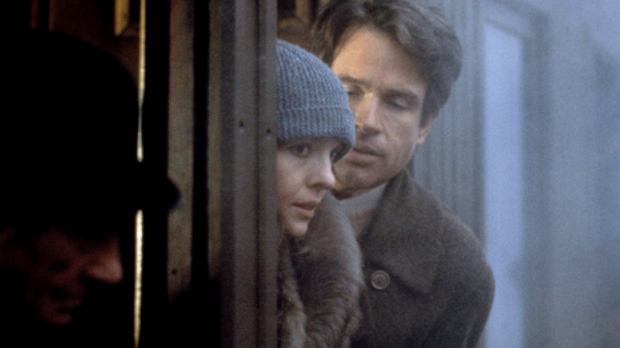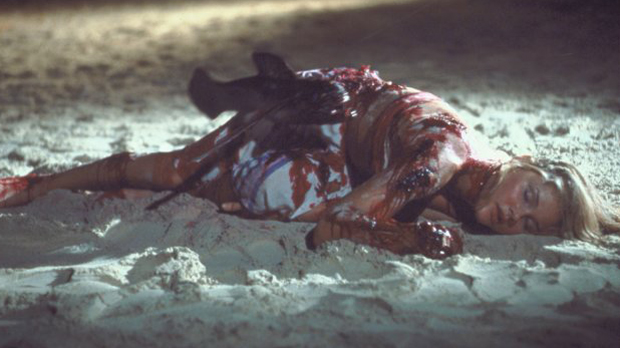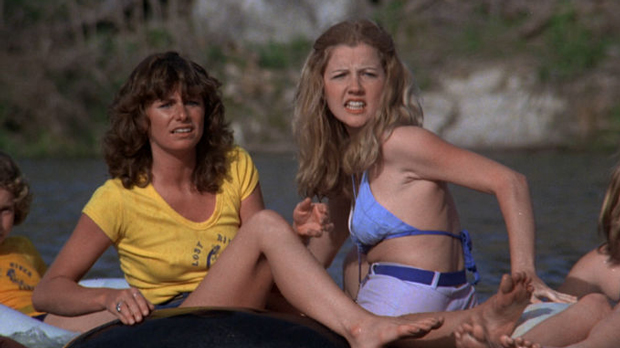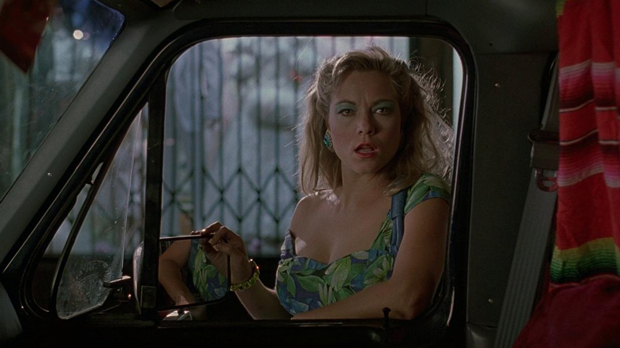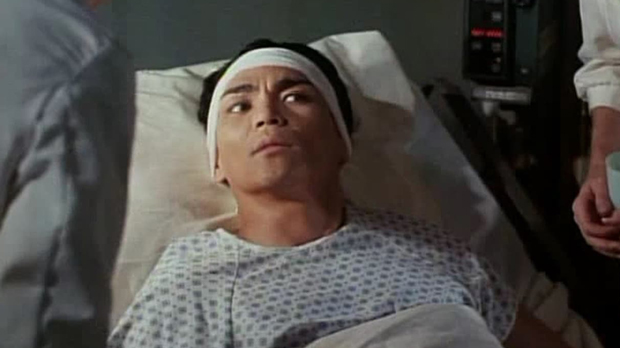 Reds (1981) Paramount/Drama RT: 195 minutes Rated PG (language, some violence, brief nudity, discreet sex) Director: Warren Beatty Screenplay: Warren Beatty and Trevor Griffiths Music: Stephen Sondheim Cinematography: Vittorio Storaro Release date: December 4, 1981 (US) Cast: Warren Beatty, Diane Keaton, Edward Herrmann, Jerry Kozinski, Jack Nicholson, Paul Sorvino, Maureen Stapleton, Nicolas Coster, M. Emmett Walsh, Gene Hackman, William Daniels, Ian Wolfe, Bessie Love, Max Wright, George Plimpton, Harry Ditson, Leigh Curran, Kathryn Grody, Dolph Sweet. Box Office: $40.4M (US)
Reds (1981) Paramount/Drama RT: 195 minutes Rated PG (language, some violence, brief nudity, discreet sex) Director: Warren Beatty Screenplay: Warren Beatty and Trevor Griffiths Music: Stephen Sondheim Cinematography: Vittorio Storaro Release date: December 4, 1981 (US) Cast: Warren Beatty, Diane Keaton, Edward Herrmann, Jerry Kozinski, Jack Nicholson, Paul Sorvino, Maureen Stapleton, Nicolas Coster, M. Emmett Walsh, Gene Hackman, William Daniels, Ian Wolfe, Bessie Love, Max Wright, George Plimpton, Harry Ditson, Leigh Curran, Kathryn Grody, Dolph Sweet. Box Office: $40.4M (US)
Rating: ****
Only a star of Warren Beatty’s stature could convince a major studio to let him make a three-hour epic about left-wing politics. A lengthy movie dealing with Communism is a tough sell, but he managed to get Paramount to put up $32 million for Reds.
In his first solo directorial effort, Beatty plays idealistic journalist John Reed, author of the book Ten Days That Shook the World, an account of his experiences in Russia during the 1917 Bolshevik Revolution. Reed, a card-carrying member of the American Socialist Party, knew a good story when he saw one and always went after it with enthusiasm. Whether it was Woodrow Wlison’s Presidential campaign or labor union strikes, he always wanted to be in the thick of the action. It was this desire that compelled him to travel to Russia to report on the tumultuous political situation. He bore witness to the fall of the Czar and the rise of Communism.
Filled with idealistic fervor, Reed tried to start a similar revolution in America only to be expelled from the Socialists along with other radicals. They formed the Communist Party of America and Reed was immediately elected their international delegate to Russia. He returned to Russia on what turned out to be a fool’s errand. The Communist leaders refused to allow him to return home claiming that he was needed here. When he tried to sneak out by way of Finland, he was arrested and jailed. He ultimately fell gravely ill and died in a Russian hospital.
Based on the above description, you might think Reds is a dry history lesson, but nothing could be further from the truth. If Reed’s actions are the brains of the movie, his love affair with Louise Bryant (Keaton, Annie Hall) is the heart. They first meet in Portland in 1915 when Bryant, a married socialite with a bohemian sensibility, attends a lecture at the Liberal Club. Reed is in attendance. Having just returned from Europe, he’s asked what he thinks is the true cause of WWI. He rises from his seat, says “Profits” and sits back down. Instantly intrigued, she asks him for an interview to which he reluctantly agrees. They end up talking all night. Actually, Reed does all the talking.
He invites her to join him in New York and she does having had enough of her stifling life in Portland. She moves in with him in Greenwich Village, a haven for artists and activists like playwright Eugene O’Neill (Nicholson, The Shining), radical newspaper editor Max Eastman (Herrmann, The Great Gatsby) and anarchist Emma Goldman (Stapleton, Interiors). Reed’s frequent absences cause Bryant to fall into an affair with sad alcoholic O’Neill while spending the summer in Provincetown. Reed and Bryant eventually get married in secret and buy a house in Croton-on-Hudson.
Any marriage involving two strong-minded partners isn’t easy; Reed and Bryant are no exception. After a big blow-up, Bryant goes to Europe as a war correspondent. Reed follows later and invites her to join him in Russia on a professional basis. She does and isn’t too long before their love in rekindled amidst the political turmoil.
When Reed returns to Russia later, she refuses to come with him. When he gets thrown in prison and the State Department refuses to help, Bryant takes it on herself to go to his aid. Since Americans are forbidden to go to Russia, she has to sneak in. It’s a long, treacherous journey that takes her through blizzards and across icy steppes. Eventually, they’re reunited at a train station in Moscow in a very powerful scene.
A true epic in every sense of the word, Reds scored Beatty a well-deserved Best Director Oscar. Wide in both scope and intellect, it’s a compelling if long-winded film. One of its most interesting aspects is how Beatty interweaves interviews with aged people (aka “The Witnesses”) who knew or knew of Reed and Bryant. They include noted figures like author Henry Miller, writer Rebecca West and entertainer George Jessel. Their recollections help set the scene and bridge transitions while adding a note of poignancy to the proceedings. They enhance an already brilliant and riveting historical drama.
The performances in Reds are uniformly excellent. Beatty uses his boyish charm to great effect to play a young man of great intellect and naivety driven by zeal and hubris. Surely it was the latter that got him in over his head with the Communist leaders in Russia. Beatty convincingly conveys Reed’s growing disillusionment with the Party as Chairman Grigory Zinoviev (Polish novelist Kosinski) continually lies to him.
Keaton is equally fantastic as Bryant, a woman who longs for more from life than small talk and a dull marriage to a man who doesn’t get her. She may be the talk of Portland high society with her radical views, but she’s of little interest to Reed’s circle of friends in the Village. Keaton effortlessly channels Bryant’s loneliness and anger as Reed follows story after story while she waits for him. It builds up until she lets it out in an especially explosive moment.
The supporting cast in phenomenal especially Nicholson and Stapleton, the latter of whom took home an Oscar for her magnificent portrayal of Emma Goldman, a tough-minded feminist who acts as the voice of reason at crucial moments. Nicholson tones down the crazy to play a morose fellow suffering from a case of unrequited love, a condition that causes him to lash out at Bryant at the wrong time.
The cinematography by Vittorio Storaro (Apocalypse Now) is gorgeous, especially the wintry scenes in Russia. Beatty, in his capacity as director, pays meticulous attention to period detail at all times. He and production designer Richard Sylbert (Chinatown) authentically recreate the bohemian scene in New York and early Communist Russia with skill. There are a handful of amazing images in Reds like the workers marching down a Russian street in support of a revolution and Reed running behind a horse cart on a battlefield after the train he and Communist leaders are travelling on is attacked. The score by Stephen Sondheim is period perfect.
Reds was the odds-on favorite to win Best Picture, but the Academy threw a real curve ball when Chariots of Fire was announced as the winner. I couldn’t believe it myself. It’s an outstanding film in its own right, but Reds is the type of film that has Best Picture written all over it. It’s a shame the studios don’t make movies like this anymore, movies that feed the brain and soul with intelligent subject matter and a grand love story painted on a huge historical canvas. Granted, Beatty could have filled in a few blanks- e.g. a scene showing Bryant leaving her first husband- but I guess he figured Reds was already long enough. Oh yes, it’s long but never dull. It’s a historical epic with a human aspect not unlike Doctor Zhivago. It makes you think and feel. More than 40 years later, it’s lost none of its power. It’s pure cinematic excellence at work. You just don’t see this level of craftsmanship coming out of mainstream Hollywood anymore.
